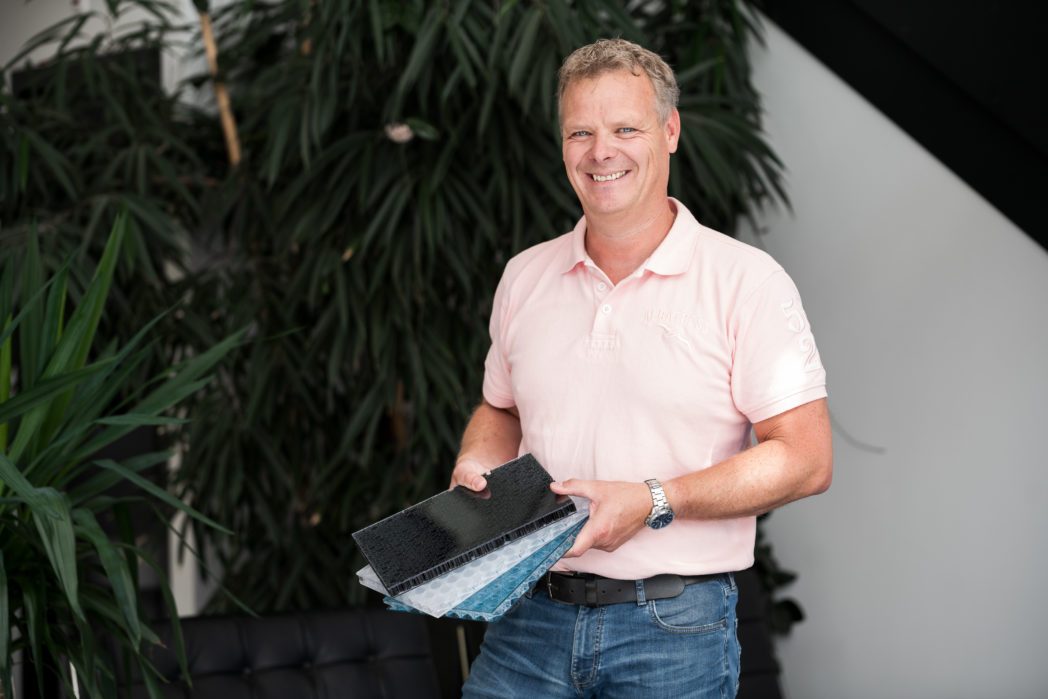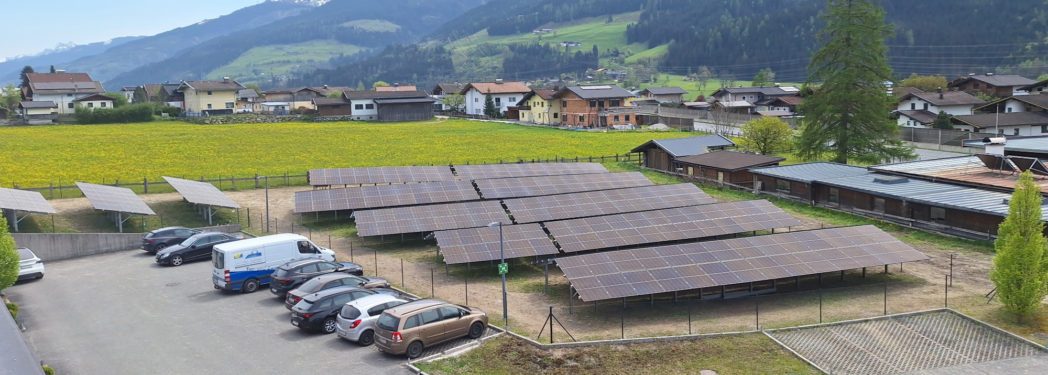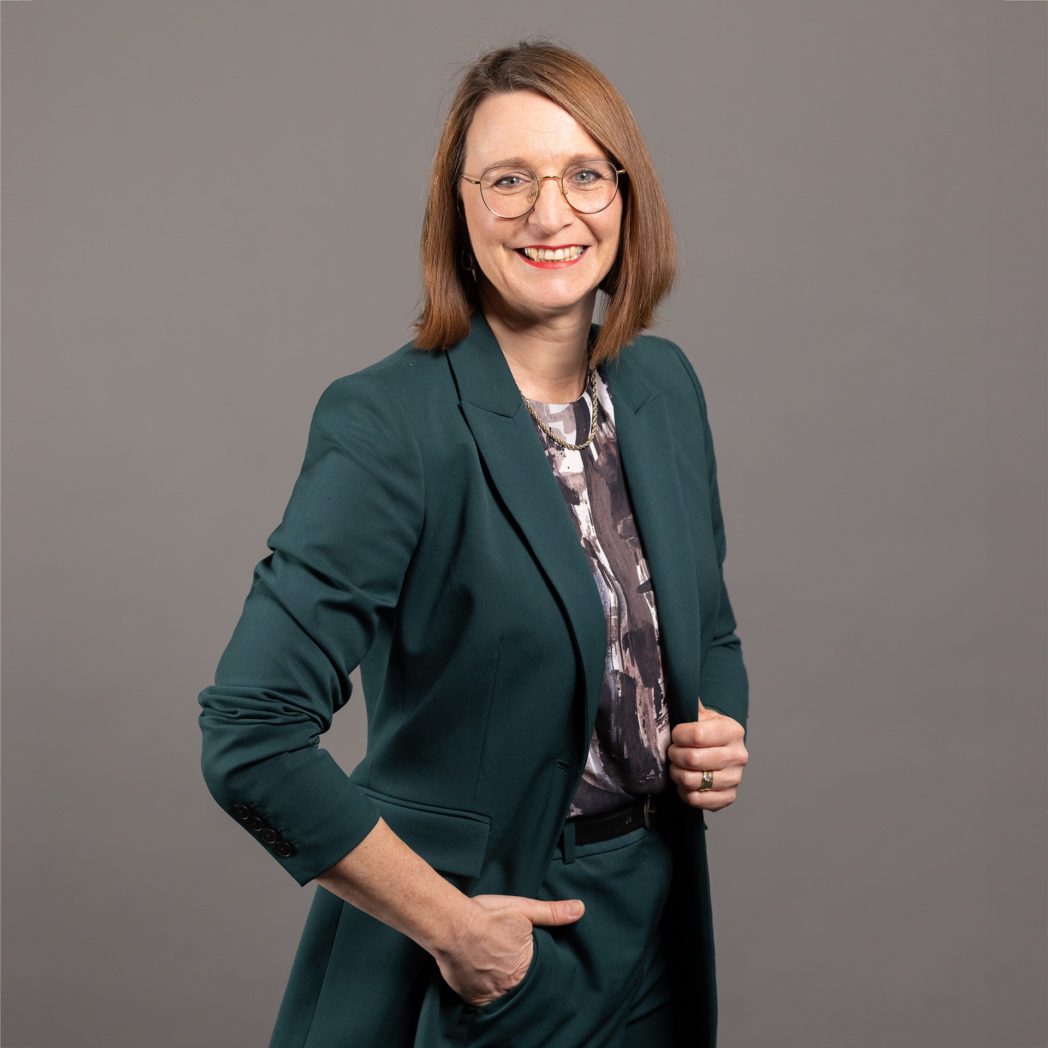
The Green Deal is based on 17 Sustainable Development Goals (SDGs) that not only promote environmental and climate protection but also social aspects. It requires companies in the EU to transition to a sustainable economy, guided by ESG criteria: Environment, Social, and Governance.
In the future, companies will need to pay attention to the environmental and social standards of their suppliers, minimize CO2 emissions from transportation, and develop products with a low carbon footprint and high recyclability. For the company Design Composite GmbH, located in Niedernsill, Pinzgau, these goals, now defined by the Green Deal, have been part of their corporate philosophy since its founding. This is also reflected in their focus on ESG principles (Environment, Social, Governance), which are documented in their own ESG report. This report was created in cooperation with move forward GmbH, always with the goal of combining economic success with a responsible approach to the environment, society, and employees.
What Design Composite Does
Design Composite was founded in 1999 as a startup of Blizzard GmbH and has specialized in the development and production of customized sandwich panels since 2005. The focus is on combining various high-tech materials into innovative composite solutions, making the company a leading provider of technically advanced elements.
More on this topic can also be found here.
For 25 years, the company has been committed to sustainability, and this commitment has only grown stronger. This is partly due to the raw materials crisis, which has heightened the focus on material cycles and recycling, as well as political decisions demanding environmental and social standards in the supply chain. Climate change and increasing waste volumes are also driving factors. Moving forward, the emphasis will be on developing circular products that can be reused at the end of their life cycle.
What Sets the Company Apart
Thanks to its transparent and equal corporate culture, along with various employee benefits, Design Composite has a very low employee turnover. However, it’s not just the employees that are important to Managing Director Johann Aster. He also focuses on regional development, the creation of sustainable products, and a functioning circular economy. “We see ourselves as pioneers in environmentally sustainable lightweight products and want to seize this opportunity,” says Johann Aster, who encourages other companies to embrace sustainability as well: “Sustainability will affect all of us in the future. The earlier you start, the greater the opportunities.”
Design Composite’s top sustainability priority is promoting a functioning circular economy and reducing waste. This transition is complex, as recyclability needs to be considered from the product development stage. The company has already made pioneering efforts in this area and offers the first circular products with a high recycling content. Design Composite also works closely with suppliers to promote resource-efficient, climate-friendly, and regional solutions. The company is also researching circular products, including recycled PET and PP, bio-based materials, and the use of already recycled raw materials. To further this goal, Design Composite has partnered with the University of Leoben, focusing on biodiversity, bio-based raw materials, and researching sustainable materials. Additionally, they are collaborating with an interest group on a project nearing completion, which aims to develop a new refrigerated vehicle that is lighter and more energy-efficient, significantly extending the lifespan of the cargo compartments.
Climate Strategy and Company Values

Design Composite’s production facility in Pinzgau, Niedernsill, built to passive house standards, utilizes waste heat from production and green electricity. Since May 2024, it has also been operating its own photovoltaic system. The vehicle fleet is currently being converted to electric drive. “As an SME, our pioneering role allows us to explore new business areas and be recognized as a reference for ecologically sustainable lightweight construction,” says Managing Director Johann Aster, adding: “In recent months, special attention has been placed on our production. Already today, 95% renewable energy is used at our site, in line with Scope 1 and 2 of the Greenhouse Gas Protocol*. Our goal is to reach 100% by 2027. We are now extending this approach to include pre-products and supplementing it with the corresponding CO2 footprint.”
Shared values are also crucial to Design Composite’s success. An internal guideline defines innovation, digitalization, and growth as the keys to economic success, aiming to be a pioneer in sustainable lightweight solutions. The company is evolving from a component supplier to a system partner, working with customers to develop future-proof solutions while providing a motivating work environment. It fosters respectful relationships internally and externally, cooperative solutions, and forward-thinking corporate governance.
*Scope 1 and Scope 2 of the Greenhouse Gas Protocol describe different sources of a company’s greenhouse gas emissions: Scope 1 refers to direct emissions from sources directly controlled by the company, such as vehicle exhaust or emissions from production facilities. Scope 2 refers to indirect emissions from energy use, such as those resulting from electricity, heating, or cooling purchases.
Our Service: The Sustainability Check
Would you like to make your business more sustainable? We can help: In a joint consultation, we’ll analyze your current sustainability status for free, identify strengths, and show you where ESG improvement potentials lie.
We look forward to supporting you on your path to a sustainable future!
This might also interest you
6. March 2025
salz21: Necessary Steps for the Future
On March 5, 2025, salz21 | Home of Innovation once again provided a platform for future topics, innovations, and interdisciplinary exchange. More than 1,000 visitors took the opportunity to learn about current developments and discuss perspectives for tomorrow. Three topics were particularly dominant: climate protection, artificial intelligence, and a strong Europe.
15. August 2024
Sunbeam Yachts: Where Craftsmanship Meets Digitalization
Sunbeam Yachts has been building exclusive sailing yachts at Mattsee for generations. The production is done by hand, with some processes now digitally supported.
12. August 2024
SBS: One Software for Many Self-Service Devices
As a leading provider of banking software in Salzburg, SBS is now exploring new markets. The company remains true to its core segment by offering manufacturer-neutral software for self-service devices in additional sectors.
5. August 2024
design composite: Digitalisation in Production
In the 3,000 m² production facility, design composite manufactures panels for lightweight construction, commercial vehicles, and as design elements in architecture. By revising the digital processes, production has been further improved. Such measures can be subsidized.
